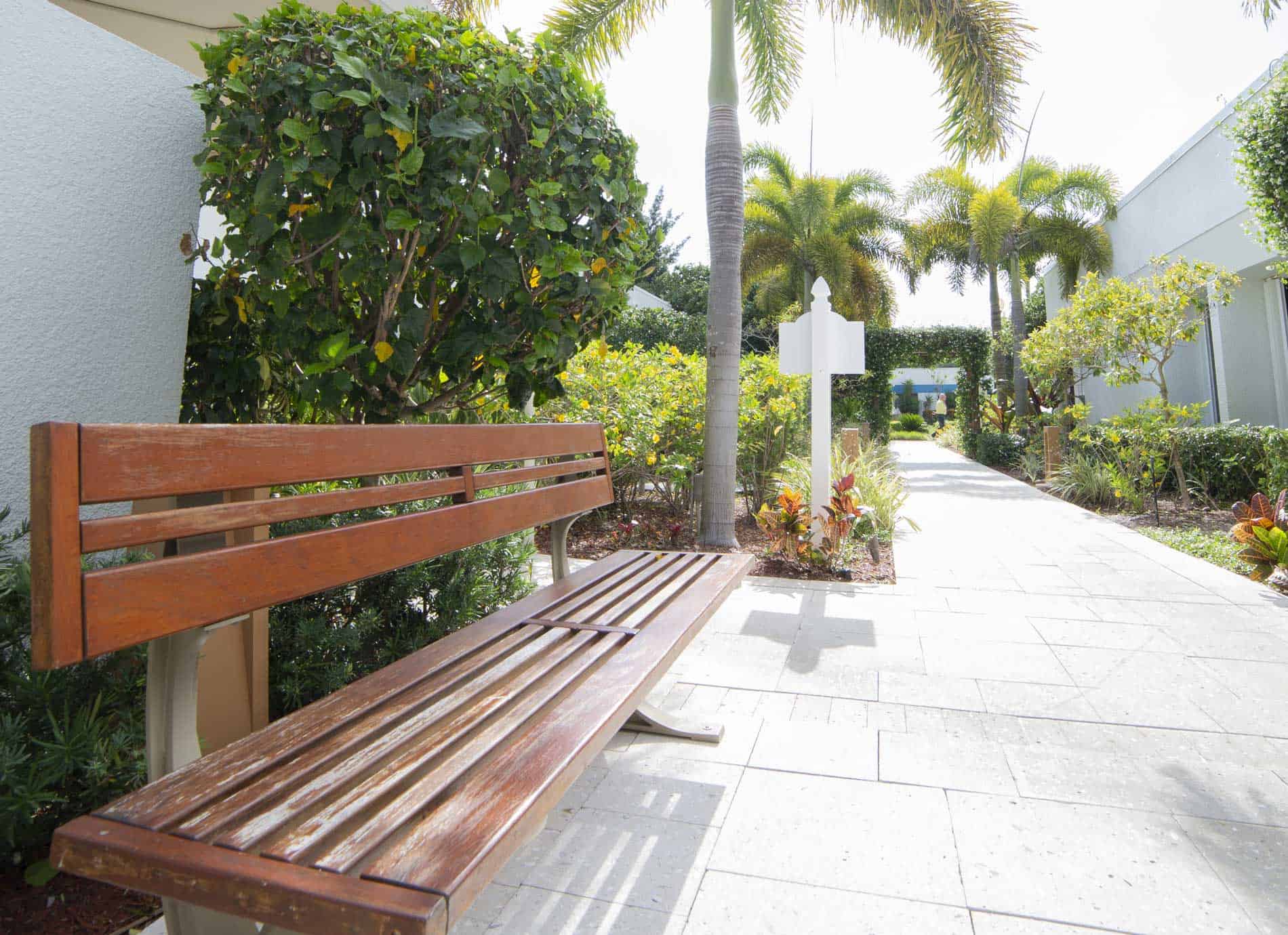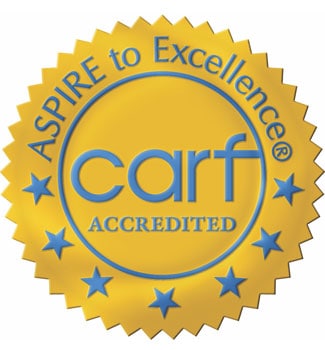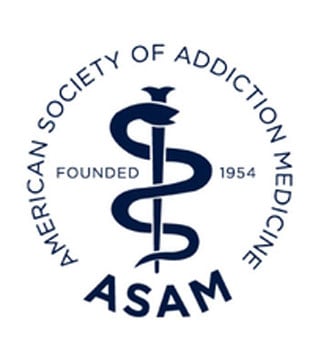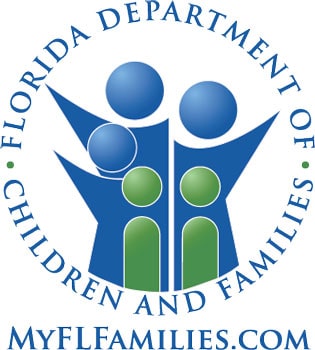Post-Traumatic Stress Disorder (PTSD) Treatment in Florida

Stressful life events happen every day. But those that break your sense of security and result in feelings of helplessness are known as trauma.
Post-traumatic stress can follow a single traumatic event or multiple traumas experienced over time.
When signs of post-traumatic stress disorder (PTSD) persist longer than three months, cause significant stress, or disrupt a person’s work, learning how to manage its symptoms in healthy ways is essential.
Healing from PTSD and addressing a substance use disorder can be done at the same time. Our West Palm Beach location provides safe, evidence-based PTSD therapy and co-occurring mental health treatment in Florida, helping individuals regain stability and long-term wellness.
What is Post-Traumatic Stress Disorder (PTSD)?
Post-traumatic stress disorder is a mental health condition that can develop after experiencing or witnessing a traumatic event such as violence, natural disasters, serious accidents, or military combat.
Unlike short-term stress reactions, PTSD symptoms persist for more than a month and interfere with daily life.
A professional PTSD diagnosis is based on these ongoing symptoms and their impact on work, relationships, and overall well-being.
Understanding the causes of PTSD and recognizing early warning signs are key steps toward recovery and effective PTSD treatment.
MENTAL HEALTH DISORDERS
What Causes PTSD?
PTSD and trauma may result from a variety of experiences, including:
- Single unexpected events: an accident, injury, or violent attack, particularly during childhood
- Sustained events: natural disasters, fighting a life-threatening illness, or experiencing repeated bullying, domestic violence, or neglect
- Overlooked events: moments you might not automatically think of as traumatic (e.g., the loss of a prized possession, the death of a relative, or the loss of a close friend after a move). Hospitalization or surgical procedures may often be overlooked as a source of trauma.
Who’s Affected by PTSD?
Unfortunately, some individuals choose not to confront work-related traumas because they are concerned about how their colleagues or supervisors might perceive them.
Feeling stigmatized for their mental health needs could lead them to cope alone or even turn to alcohol or drugs to manage PTSD symptoms.
PTSD Symptoms
How you respond to typical stress or reminders of past trauma can be signs of PTSD.
Post-traumatic stress disorder can appear in many ways, affecting thoughts, mood, and daily functioning. Common symptoms include:
- Recurrent episodes of unwanted, intrusive thoughts
- Nightmares, distressing dreams, or flashbacks
- Withdrawal from social circles and loved ones
- Continuous hypervigilance for cues indicating an additional danger
- Unwarranted anger
- Negative changes in feelings and beliefs
- Fluctuating moods
- Anxiety
- Depression
- Dissociative mental experiences
- Inability to function with daily tasks
- Exaggerated reaction to events
- Episodes of panic
- Inability to concentrate
- Insomnia
How Trauma Can Lead to PTSD
Trauma often involves a threat to your safety or life, but any overwhelming or isolating situation can cause a traumatic impact, regardless of direct physical harm.
What matters most is your personal emotional response. When fear and helplessness persist after a traumatic event, these reactions can develop into post-traumatic stress disorder.
Recognizing this link between trauma and PTSD is the first step toward seeking professional treatment and beginning recovery.
Symptoms of Trauma
Now that we’ve explored what can cause PTSD, it’s equally important to recognize the warning signs of trauma itself.
People experiencing these symptoms may not realize they stem from past traumatic events and instead view them as normal reactions to current stress. Over time, unaddressed trauma can intensify and increase the risk of developing PTSD.
Common trauma symptoms include:
- Anxiety or persistent fear
- Insomnia or changes in sleep patterns
- Disordered eating
- Social withdrawal or difficulty connecting with others
- Relationship problems
- Compulsive or self-destructive behaviors
- Shock or emotional numbness
- Irritability or frequent anger
- Panic attacks
- Memory loss or confusion
- Episodes of extreme stress
- Nightmares or disturbing dreams
Types of PTSD Treatment
Our PTSD treatment in Florida offers several evidence-based trauma therapies and individualized treatment plans to address the unique traumatic experiences or causes of PTSD you may have encountered.
We also offer residential inpatient treatment for PTSD at our Residential Mental Health Program. For those with co-occurring substance use and mental health disorders, we offer treatment at our Center for Men’s Recovery, Center for Women’s Recovery, and Center for Older Adult Recovery programs with specialized tracks for pregnant women and veterans and first responders.
Trauma therapies at Hanley Center include:
- Individual and group therapy
PTSD counseling helps patients feel heard and supported while learning new coping skills. - Meditation training
Mindfulness introduces patients to becoming intensely aware of what they’re sensing in their bodies and encourages them not to interpret or judge those sensations. - Eye Movement Desensitization and Reprocessing (EMDR)
EMDR uses eye movement to disrupt patterns of trauma-related memories. - Cognitive Behavioral Therapy (CBT)
CBT reframes traumatic memories, teaches relaxation techniques, and uses role-play to process past experiences. - Biofeedback
Biofeedback teaches patients how to control basic body functions, such as heart rate, to relax when reminded of a traumatic memory. - Neurofeedback
Neurofeedback encourages the brain to develop healthier patterns of activity.
These therapies help patients process painful memories and PTSD causes in a safe and supportive setting. They also introduce new ways to help them cope with the feelings associated with the traumatic experience or the person who caused the trauma.

Addiction and PTSD
People who have a PTSD diagnosis may seek relief through the frequent use of alcohol and drugs. According to a review published in Current Psychiatry Reports, about 40% of individuals with substance use disorders also meet criteria for PTSD, underscoring how frequently these conditions occur together.
Unfortunately, alcohol and drug use often intensifies PTSD symptoms. Intoxication can impair judgment and decision-making, increasing the risk of additional trauma such as accidents, physical violence, or sexual assault.
Substance misuse is not an effective coping mechanism and may even worsen the underlying post-traumatic stress.
At Hanley Center, treatment addresses both conditions at the same time. Our clinical team incorporates evidence-based therapies to help patients process trauma, regulate emotions, and develop healthier strategies, so that when feelings of panic or distress return, they can rely on new skills rather than alcohol or drugs.
Gender Issues and PTSD Treatment
When someone is healing from post-traumatic stress disorder and addiction, treatment works best when it is trauma-informed, evidence-based, and sensitive to individual experiences.
Because men and women often process trauma in different ways, Hanley Center provides gender-specific programs where patients can feel safe, understood, and supported as they share their stories and begin to recover from PTSD and other co-occurring mental health conditions.
Treatment Modalities for Trauma
Trauma-related disorders such as PTSD require specialized therapies to address the traumatizing experiences. These therapies help reprocess memories and associated reactions and develop healthier coping mechanisms.
Our PTSD treatment centers treat the underlying trauma while empowering patients to live independently without relying on substances.
At our Center for Brain Recovery, specialists review the patient’s progress and identify any upcoming psychological difficulties, including PTSD. Our licensed therapists and master’s-level clinicians are part of a multidisciplinary team that offers customized PTSD treatment in Florida.
Based on the unique circumstances of everyone, Hanley Center may also offer evidence-based treatments such as:
- Cognitive-behavioral therapy (CBT)
- Eye Movement Desensitization and Reprocessing (EMDR)
- Neurofeedback
- Biofeedback
- Mindfulness training and meditation
- Individual therapy or group therapy

Heal From PTSD at Hanley Center
Our proven PTSD treatment in Florida provides tools to assist with anticipating triggers, reducing anxiety and fear responses, managing mood swings and anger, and processing traumatic memories.
Our multidisciplinary team of healthcare professionals has extensive experience in a trauma-informed treatment approach to addiction and expertise in addressing various other co-occurring mental health concerns. Contact us today to learn more.
Call the caring staff at Hanley Center today at (561) 841-1033. Recovery is possible.
Insurance Can Cover up to 100% of Treatment
We offer free, no obligation health insurance benefit checks. If you are currently insured, your treatment could be covered partially or in full.
Frequently Asked Questions about PTSD
How long does PTSD therapy usually last?
The length of PTSD treatment varies by individual needs and the severity of symptoms. Many patients participate in therapy for three to six months, while others benefit from ongoing support or a longer residential stay for complex trauma.
Can PTSD be fully cured with treatment?
While there is no single “cure” for PTSD, evidence-based therapies such as cognitive behavioral therapy (CBT), eye movement desensitization and reprocessing (EMDR), and medication can significantly reduce or eliminate symptoms, allowing many people to live symptom-free and enjoy a full, healthy life.
What types of medications are used for PTSD?
Common PTSD medications include certain antidepressants (SSRIs and SNRIs) such as sertraline or paroxetine, which can help manage anxiety, mood changes, and sleep issues. Medication plans are personalized and often combined with therapy for best results.
Is residential PTSD treatment more effective than outpatient care?
Residential treatment offers 24/7 support, structured therapy schedules, and a safe environment for intensive healing, which can be especially helpful for severe or long-standing PTSD. Outpatient care is also effective for many people. At Hanley Center, our skilled team helps determine the appropriate level of care tailored to your specific needs.
How do I know if I need PTSD therapy or counseling?
You should consider therapy if you experience intrusive memories, nightmares, avoidance behaviors, or heightened anxiety that interfere with daily life. A professional assessment at Hanley Center can confirm whether PTSD therapy is appropriate.
Can PTSD therapy help with co-occurring substance abuse?
Yes. Hanley Center specializes in integrated treatment for PTSD and substance use disorders, addressing trauma and addiction at the same time to support lasting recovery.
Does insurance cover PTSD treatment programs?
Many insurance plans cover PTSD therapy and residential treatment. Hanley Center’s admissions team can verify benefits and guide you through the approval process.
How do I choose the right PTSD treatment center in Florida?
Look for a center that offers evidence-based therapies, experienced clinicians, individualized treatment plans, and dual-diagnosis care. Hanley Center provides all of these in a peaceful Florida setting, helping patients heal both mind and body.
What are the success rates for PTSD recovery programs?
Can children and adolescents receive PTSD therapy at Hanley Center?
Hanley Center’s PTSD treatment programs are designed for adults. Our services focus on evidence-based trauma therapies and integrated addiction treatment for individuals 18 and older in a residential setting.
Information entered on this form will not be used to initiate SMS.
Address: 933 45th Street
West Palm Beach, FL 33407



